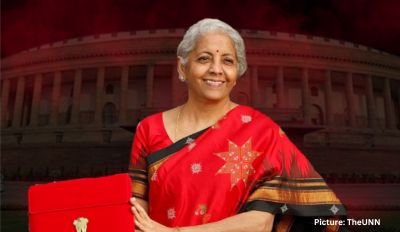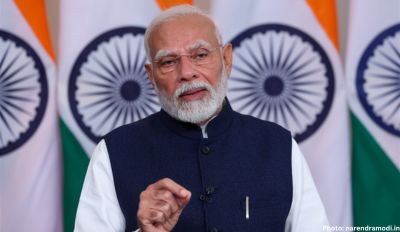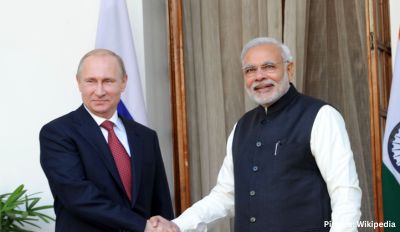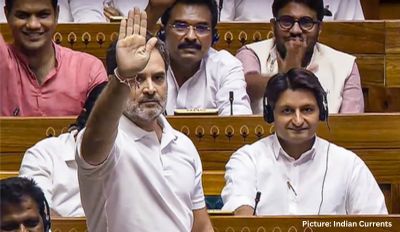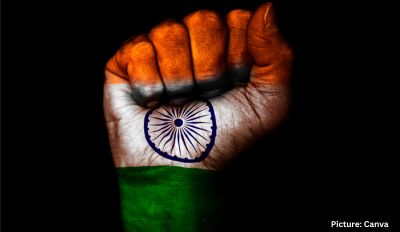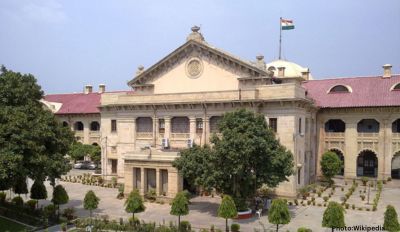The results of India’s general election announced on Tuesday have sparked an unusual reaction: while the winners seem restrained, the runners-up are celebrating. The National Democratic Alliance (NDA), led by Prime Minister Narendra Modi, has secured a historic third term with over 290 seats in the 543-member parliament. However, Modi’s Bharatiya Janata Party (BJP) alone did not achieve the 272 seats needed to form the government, casting him as a diminished leader.
The outcome is seen as a significant comeback for the opposition INDIA alliance and its leader, Rahul Gandhi of the Congress party. Although the alliance won just over 230 seats and lacks the numbers to form a government, they have not conceded more than 24 hours after the vote counting began. “It’s an extraordinary story,” political analyst Rashid Kidwai told the BBC. “The result is surprising. The opposition has managed to pull off the unexpected.”
A jubilant Congress party declared the verdict “a moral and political defeat for Mr Modi,” whose BJP had heavily campaigned on his name and record. On Tuesday evening, Gandhi said in a press conference that “the country has unanimously sent a message to Mr Modi and [Home Minister] Amit Shah that we do not want you.”
This enthusiasm has a backdrop. Going into the election, the opposition seemed disorganized, and the Congress-led INDIA bloc, comprising more than two dozen regional parties, appeared on the brink of collapse. Experts doubted its ability to challenge Modi, who seemed unstoppable at the time. As the election approached, the opposition faced significant challenges: party leaders were raided by government agencies, two chief ministers were jailed, and Congress bank accounts were frozen by income-tax authorities.
Kidwai credits the opposition’s performance largely to Rahul Gandhi, the often-criticized scion of the Nehru-Gandhi dynasty. “He’s a fifth-generation dynast and came with a lot of historical baggage,” Kidwai explains. “The mainstream media in India was very hostile to him and social media didn’t take him seriously. He was targeted and projected as a non-serious politician who took too many holidays.” Nonetheless, Gandhi worked hard to change this perception, especially during his Bharat Jodo Yatra and Nyay March, where he met millions of people across the country, boosting his stature and gaining support.
Despite his efforts, Gandhi was not initially perceived as a threat to Modi. Last year, a court in Gujarat convicted Gandhi of defamation, resulting in his expulsion from parliament and a ban on contesting elections—until the Supreme Court suspended his conviction. Political analyst and author Ajoy Bose believes the BJP’s tactics to intimidate the opposition backfired. “The BJP got a bit arrogant and complacent. But their shock and awe tactics to intimidate the opposition worked against the BJP and led to the formation of the INDIA bloc.”
Bose suggests that many parties feared being wiped out and saw echoes of the Emergency era in the government’s functioning. India has “a history of competitive democracy,” he says, and there was a sense among the people of “disquiet and discomfort about the country turning into a one-party dictatorship.”
The results indicate that the BJP faced strong resistance in several opposition-ruled states. In Tamil Nadu, the ruling DMK party won all 39 seats, keeping the BJP out. In West Bengal, Chief Minister Mamata Banerjee limited the BJP to 12 seats, down from 18 in 2019. In Maharashtra, the BJP won only nine seats, compared to 23 in 2019, with its then-ally Shiv Sena winning an additional 18.
The biggest setback for Modi and the BJP came from Uttar Pradesh (UP). “Akhilesh Yadav and his Samajwadi Party (SP) is the biggest success story of this election,” says Bose. A clever alliance with Rahul Gandhi resulted in the SP winning 43 of the state’s 80 seats, reducing the BJP’s tally to 33, a significant drop from 62 seats in 2019 and 71 in 2014.
Modi had dismissed Gandhi and Yadav as “a pair of boys” whose alliance had “flopped” in the past. However, the election results proved otherwise. “A key takeaway from the election,” Bose notes, “is that the grand new Ram temple in Ayodhya city wasn’t enough for the BJP to win.” Despite the party banking on the Ram Mandir temple, the BJP candidate lost in the Faizabad constituency where it is located.
Abhishek Yadav, an SP youth-wing leader and prominent campaigner, told the BBC they initially believed the temple would help the BJP win. However, they noticed growing resentment against the BJP as large crowds gathered at their rallies. “Until early April, [the] election in the state had seemed like a one-sided contest with the odds stacked against us,” he said. But dissatisfaction over job shortages, high food and fuel prices, and changes in army recruitment became evident, rallying anti-BJP voters to the INDIA alliance.
Kidwai notes that despite the opposition’s strong performance, it was a missed opportunity as they failed to fully understand voter sentiments and capitalize on discontent with Modi’s government. “They spoke about joblessness, rural economic distress and were able to win over many voters – but there were lots of gaps in their strategy,” he says. “The NDA’s third term has come only because of weaknesses in the INDIA bloc. They could have forged alliances in Andhra Pradesh and Odisha and that would have made their tally stronger.”
With the NDA and Modi back in power, Kidwai argues that INDIA needs to institutionalize its alliance, and Gandhi, “the chief architect of the alliance,” must lead from the front. “It’s unlikely that the government will stop going after the opposition. But it also can’t be business as usual for the government. They cannot continue with their politics of vendetta; it will have to be toned down.”
He adds that the opposition’s strength in parliament could restore functional ties, emphasizing the need for coalition politics, with Congress leading the way. “The Gandhis consider themselves as trustees of power, not power-wielders. But now the time has come to change. Rahul Gandhi has to take on the mantle of leadership and lead.”


